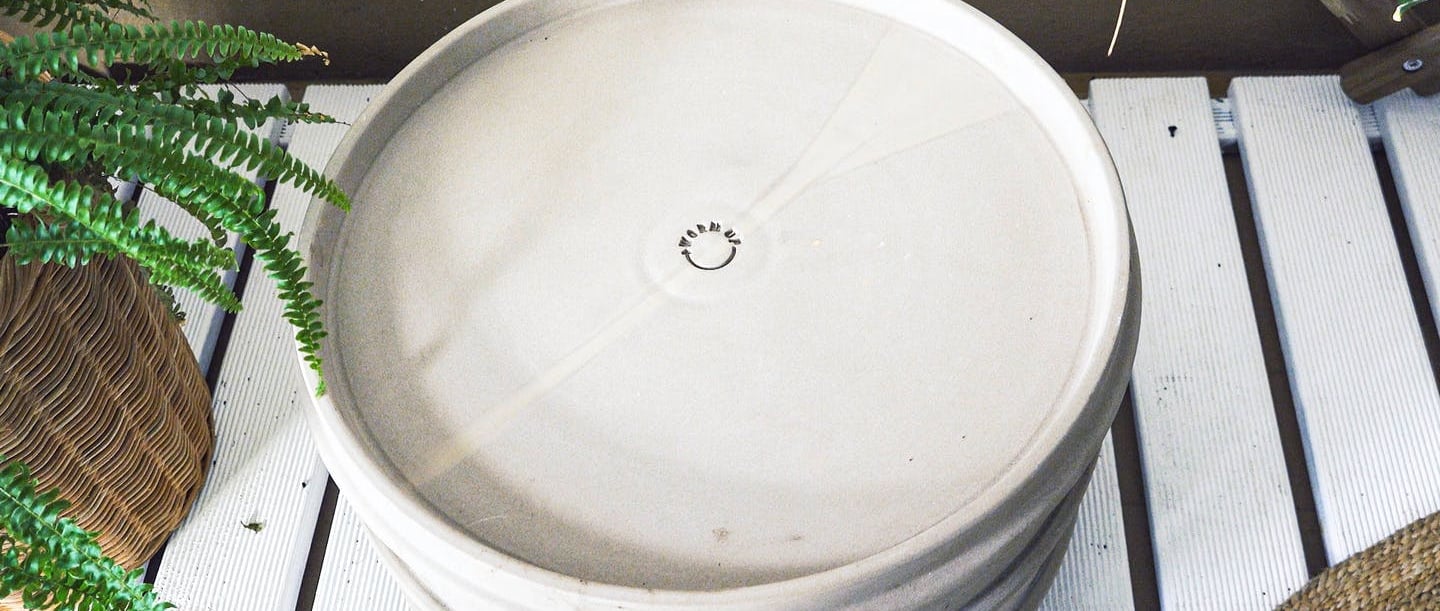Circular Clothing in a self-test: waste-free fashion through circular clothing
Where food scraps, soil-dwelling organisms, micro-organisms and your CALIDA shirt meet up in a compost heap. Sounds odd? Perhaps a bit, but it’s actually quite cool! We take you through the so-called Cradle to Cradle principle and explain to you how our "Circular Day" can be brought back into the cycle in a natural way.
August 30, 2023 • 6 min reading time

Worm compost container made of breathable ceramic by WormUp.
The current problems in the fashion industry are widely known, and it’s disposing of clothes that causes a large portion of the industry’s pollution. Many garments end up in a rubbish heap after just a short time. If you think about the fact that a garment, for example made of polyester, only starts to decompose after 100 years and releases all kinds of chemicals into the soil and water, you can just imagine how that pile is growing day after day. That is exactly what we wanted to change by developing our Circular Day collection. A range of products that are 100% circular and make a clear statement: high-quality textiles can indeed be produced sustainably.
All of the products in the Circular Day collection are certified by the independent Cradle to Cradle Certified® label, the only label to date that guarantees that clothing is circular. This means the raw materials used are returned to the biological cycle and, after a few months, you have contaminant-free compost.
That sounds great in theory, but to see how it works in real life, we tried it out for ourselves with our compost bin from WormUp and couldn’t help but share what we learned with you.
The current problems in the fashion industry are widely known, and it’s disposing of clothes that causes a large portion of the industry’s pollution. Many garments end up in a rubbish heap after just a short time. If you think about the fact that a garment, for example made of polyester, only starts to decompose after 100 years and releases all kinds of chemicals into the soil and water, you can just imagine how that pile is growing day after day. That is exactly what we wanted to change by developing our Circular Day collection. A range of products that are 100% circular and make a clear statement: high-quality textiles can indeed be produced sustainably.
All of the products in the Circular Day collection are certified by the independent Cradle to Cradle Certified® label, the only label to date that guarantees that clothing is circular. This means the raw materials used are returned to the biological cycle and, after approximately 10 weeks, you have contaminant-free compost.
That sounds great in theory, but to see how it works in real life, we tried it out for ourselves with our compost bin from WormUp and couldn’t help but share what we learned with you.
This means that when the environment in your compost is right, you can put your worn-out shirt that you no longer want (of course any other product from the Circular Day collection will also do) in the compost. Cover the garment with soil, put the lid on and leave the rest to the incredible capabilities of nature.
It takes just a few days to see initial results. Small holes or frayed edges and seams indicate that the process has started. Little by little, your ‘old’ shirt starts to disappear.
After about 10 weeks, there is nothing left of your shirt. The shirt has decomposed completely and has been broken down into new, valuable organic nutrients. The waste material from an old product has now become the ‘food’ for a new one. With this approach, it is not only possible to avoid huge piles of waste, but to also create a basis for something new.
Although the shirt in our self-test was completely decomposed after a good 10 weeks, the duration of composting can be shorter or longer, depending on the situation. The composting time depends on different factors such as temperature, season or moisture of the soil. For this reason, the duration of biodegradation can vary between 2 and 12 months.
Do you believe us now?
If it all looks like too much work, you can also bring the product to your nearest CALIDA store and we, with nature doing most of the work, will happily take care of the rest for you.
Discover the latest Cradle-to-Cradle® styles:
Discover more topics from our blog that might interest you:









